Numbers have important meanings in Scripture. For example, the number four represents the world (four corners), five speaks about grace, six is the number for man, and seven is used to reference perfection or completion. But what about the number eight?
The number eight is very significant such that it is used 73 times in the Bible. It is the symbol of resurrection and regeneration. In Bible numerology, eight means a new beginning; it denotes “a new order or creation, and man’s true ‘born again’ event when he is resurrected from the dead into eternal life.” The first historic reference is to Noah and his family as “eight persons were brought safely through the water” (1 Peter 3:20). Those eight persons experienced a true new beginning once the flood receded. Another was instituted by God as a sign of the covenant He was making with Abraham in Genesis 17:12, that each child would be circumcised on the eighth day. This covenant with Abraham represented a new relationship with God.
Plumpness
The Hebrew word shemoneh is translated as eight or eighth and is derived most likely from the root word meaning plumpness as if a surplus above the “perfect” seven. Of course, the first mention of seven is found in Genesis 1 with the creation story, in reference to seven days as a week. Metaphorically, the eighth day takes us above and beyond the seventh day, the day of rest.
Two other Old Testament references to the number eight include 1 Samuel 17:12-14 indicating King David as the youngest of eight children, the eighth child, and the one who would become known as “a man after My (God’s) heart.” In 2 Chronicles 34:1-3, Josiah, one of only three good kings, became king when he was eight years old. In verse 3, Scripture says, “For in the eighth year of his reign while he was still a youth, he began to seek the God of his father David.” A new beginning took place in Josiah’s heart in his eighth year. It says he began to purge the images of other gods from Judah and Jerusalem. Both David and Josiah changed the course of history.
Shemini Atzeret
In Leviticus 23:33-36, the Lord institutes the Feast of Tabernacles (Sukkot) to be celebrated for seven days in fabricated booths as a reminder of the nation’s exodus from Egypt. In verse 36: “For seven days you shall present an offering by fire to the Lord. On the eighth day, you shall have a holy convocation and present an offering by fire to the Lord; it is an assembly. You shall do no laborious work.” This eighth day of Sukkot is also known as Shemini Atzeret and is a separate—yet connected—a holy day devoted to the spiritual aspects of the festival of Sukkot. Part of its duality as a holy day is that it is simultaneously considered to be both connected to Sukkot and also a separate festival in its own right. It is also referred to as “the great day of the feast.” John’s gospel cites a particular event that occurred on that day in John 7:37-39:
“Now, on the last day, the great day of the feast, Jesus stood and cried out, saying, “If anyone is thirsty, let him come to Me and drink. He who believes in Me, as the Scripture said, ‘From his innermost being will flow rivers of living water.'” But this He spoke of the Spirit, whom those who believed in Him were to receive; for the Spirit was not yet given because Jesus was not yet glorified.
This connection between the eighth day and the Holy Spirit is significant.
The Fountain of Living Water
Jesus is believed to have been born on the first day of Sukkot, so His dedication, covered by Luke in chapter 2:22-23, was on Shemini Atzeret. In John 8:2, Jesus entered the temple on that day and addressed the woman caught in the act of adultery. When Jesus was writing with his finger on the ground after His statement, “He who is without sin among you, let him be the first to throw a stone at her,” He may have been writing their names as a statement of judgment, in fulfillment of Jeremiah 17:13, O Lord, the hope of Israel, all who forsake You will be put to shame. Those who turn away on earth will be written down because they have forsaken the fountain of living water, even the Lord.
After eight days, His disciples were again inside, and Thomas with them. Jesus came, the doors having been shut, and stood in their midst and said, “Peace be with you.” Then He said to Thomas, “Reach here with your finger, and see My hands, and reach here your hand and put it into My side, and do not be unbelieving, but believing.” Thomas answered and said to Him, “My Lord and my God!” Jesus said to him, “Because you have seen Me, have you believed? Blessed are they who did not see and yet believed.” (John 20:26-29)
Eight days after the resurrection, an important event is covered by the Gospel of John. Thomas had not been present during an earlier meeting of the disciples with the risen Lord. Thomas had expressed doubt after others told him, “We have seen the Lord.” Jesus went out of His way to address those doubts by allowing Thomas to touch His wounds as proof that He was real. This is the very moment that Thomas became a believer when he said, “My Lord and my God!” It was the eighth day when Thomas finally recognized His resurrection. Jesus then addresses those who follow, that our “come to Jesus” moment is to be realized on the basis of faith when we are taken beyond the physical realm into the spiritual realm.
Anointing
A Hebrew word closely related to shemoneh is shemen and is translated “anointing” in the King James version. In Isaiah 61:1, “The Spirit of the Lord God is upon me because the Lord has anointed me to bring good news to the afflicted; He has sent me to bind up the brokenhearted, to proclaim liberty to captives and freedom to prisoners.” This is a clear reference to Jesus as Messiah and quoted by Him in Luke 4:18 as being fulfilled “in their hearing” (verse 21). The Holy Spirit is the source of His anointing and will become that for the New Testament believer as well at Pentecost.
It is commonly accepted that the Law was given to Moses on the Feast of Shavuot, otherwise known as Pentecost. This means that the old covenant and the new covenant were given on the same day, some 1,500 years apart. When the Holy Spirit came upon believers in Jesus as Messiah in Acts 2, it was the completion of the old work and the new beginning of a better covenant (Hebrews 8:6). Like Shemini Atzeret, it is connected to the old covenant, yet it is its own separate celebration, bringing in an anointing to the believer by the Holy Spirit not experienced by Old Testament believers. This eighth day is really a brand-new week in God’s sovereign plan to take us to the Second Coming of Messiah.






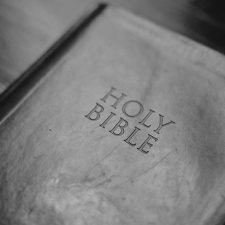
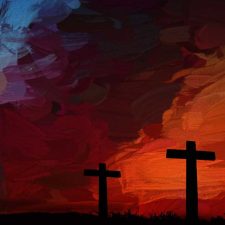


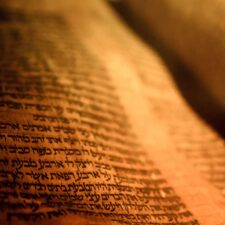

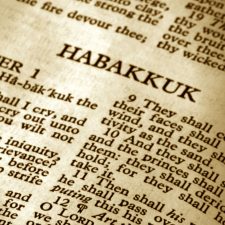
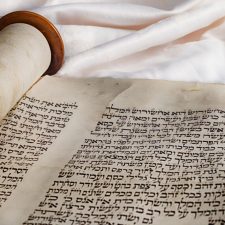
Thank you for your insightful article on the importance of the number 8 in biblical numerology. It’s fascinating to learn about the symbolic significance that numbers hold in the Bible, and your explanation of how the number 8 represents new beginnings is particularly thought-provoking.
As you mentioned, the number 8 is associated with the concept of circumcision, which signifies a covenant with God and a new beginning for the individual. This sheds light on why the eighth day was chosen for the ritual, emphasizing the idea of a fresh start.
Furthermore, your explanation of how the number 8 also represents the Resurrection of Jesus Christ is a powerful reminder of the hope that comes with new beginnings. The Resurrection marked the beginning of a new era for humanity, one in which we are saved through faith in Christ.
Overall, your article highlights the rich symbolism embedded within the Bible and encourages readers to reflect on the deeper meanings behind the numbers we encounter in Scripture. Thank you for sharing your insights on this topic.
Best regards
Ronald
Dear Mr. Alderson, can anything good come out of the COVID-19 pandemic? Yes, and you are living proof! I immensely enjoyed this your blog/ Bible study on the number eight! Today is 8-24-24. I would love to know if you think there is biblically a significance in this series of 8?
Hi J. Davies,
Thanks for your encouraging words. There are no coincidences with God. I have no unique insight into the significance of 8-24-24. The Gregorian calendar was not the original calendar. According to the Dead Sea Scrolls calendar (see biblefacts.org), which I believe is God’s calendar from creation. today is Elul 7, 5949. This means that we are about 50 1/2 years from the year 6000. A number of ancient writings suggest that the Lord’s return will be somewhere in the last 50 years (a jubilee) of history, sometime after March 18, 2026 and before the year 2075.
Blessings,
Bill Alderson
small revision
that each male child would be circumcised on the eighth day.